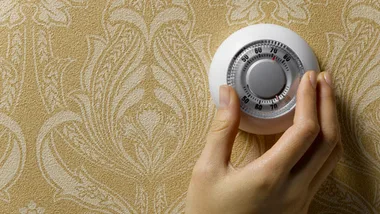The sharing economy, the shared economy, the collaborative economy – whatever you want to call it, has changed the way our society operates and experts warn it’s important to consider the tax implications of participating in this trend.
When we thinking of the sharing economy, apps like Uber and Airbnb come to mind. You’d be hard pressed to find someone who has not at least heard of these platforms.
1 in 6 of us Aussies now has a Airbnb account and almost 70 per cent of Australian’s of have made money from or used the sharing economy in the last year.
RateSetter conducted a study earlier this year and found that over 10.8 million Australians are set to earn extra money from sharing economy services in the next 6 months, representing roughly 60% of the nation’s entire working population.
So what does this all mean for our taxes?
Mark Chapman, Director of Tax Communications at H&R Block shares his top 10 tax tips for workers in the sharing economy.

1. Income must be declared on your tax return
Income you receive from working in the sharing economy is taxable and must be declared on your tax return.
2. Claim deductions for any work related expenses
You can claim deductions for any expenses you incur as part of your work in the sharing economy:
If you are an Uber driver, most of your expenses are likely to focus on the costs of purchasing and running your vehicle. Remember to keep a log book of your journeys over a 12 week period so you can work out the business/personal split and keep a log of all journeys, including travel to and from pick-ups. Keep receipts too, so you can substantiate costs like fuel, servicing, car cleaning, etc.
If you rent out a room through Airbnb, you can claim an appropriate proportion of any property related expenses such as rates, cleaning, heating and lighting, water, and cable TV subscriptions (if your guests have access to a TV connected to a cable service).
If you’re an Airtasker worker, you can claim the cost of any tools or equipment you use in your work, as well as the costs of travelling to and between jobs.
3. Fees of commissions could be tax deductible
Most sharing economy services take a fee or a commission out of the price you charge your customer for the services. That fee or commission is tax deductible.

4. As a small business you have access to tax concessions
Typically, you aren’t employed by the sharing economy provider. For tax purposes, you are regarded as self-employed.
That means you have access to all the tax concessions available to small businesses, including the $20,000 instant asset write-off for capital assets.
Which means you can immediately deduct the cost of any plant, tools or equipment you use in your business, including items such as computers and even motor vehicles (convenient for Uber drivers buying second-hand cars).
5. Claim home office expenses
If you run the admin side of your business from home, don’t forget to claim the appropriate proportion of home-office expenses, such as internet fees, landline or mobile phone bills, costs of office furniture, etc.
6. Only claim the business-related elements
Where expenses relate to a mixture of business use and private/domestic use, make sure you only claim the business related element.
7. Capital gains tax exemptions for Airbnbers
If you rent out part of your home through Airbnb, you might lose part of the Capital Gains Tax exemption which typically applies to your main residence. That means you could have a Capital Gains Tax bill if you sell your house.

8. Uber drivers register for GST and claim GST credits
If you’re an Uber driver, you must register for GST with the ATO and charge GST on all your fares, from the first dollar.
You can also claim GST credits on your work-related purchases. You will need to submit a BAS form every quarter.
9. Airbnb or Airtasker register for GST if turnover exceeds $75,000
If you’re an Airbnb or Airtasker, you only need to register for GST if your turnover from your shared economy business (combined with any other business you run) exceeds $75,000.
10. Make sure you disclose your income
The ATO has been in contact with all sharing economy service providers and knows who operates through those services. If you fail to disclose income from your sharing economy work, the ATO will know.





